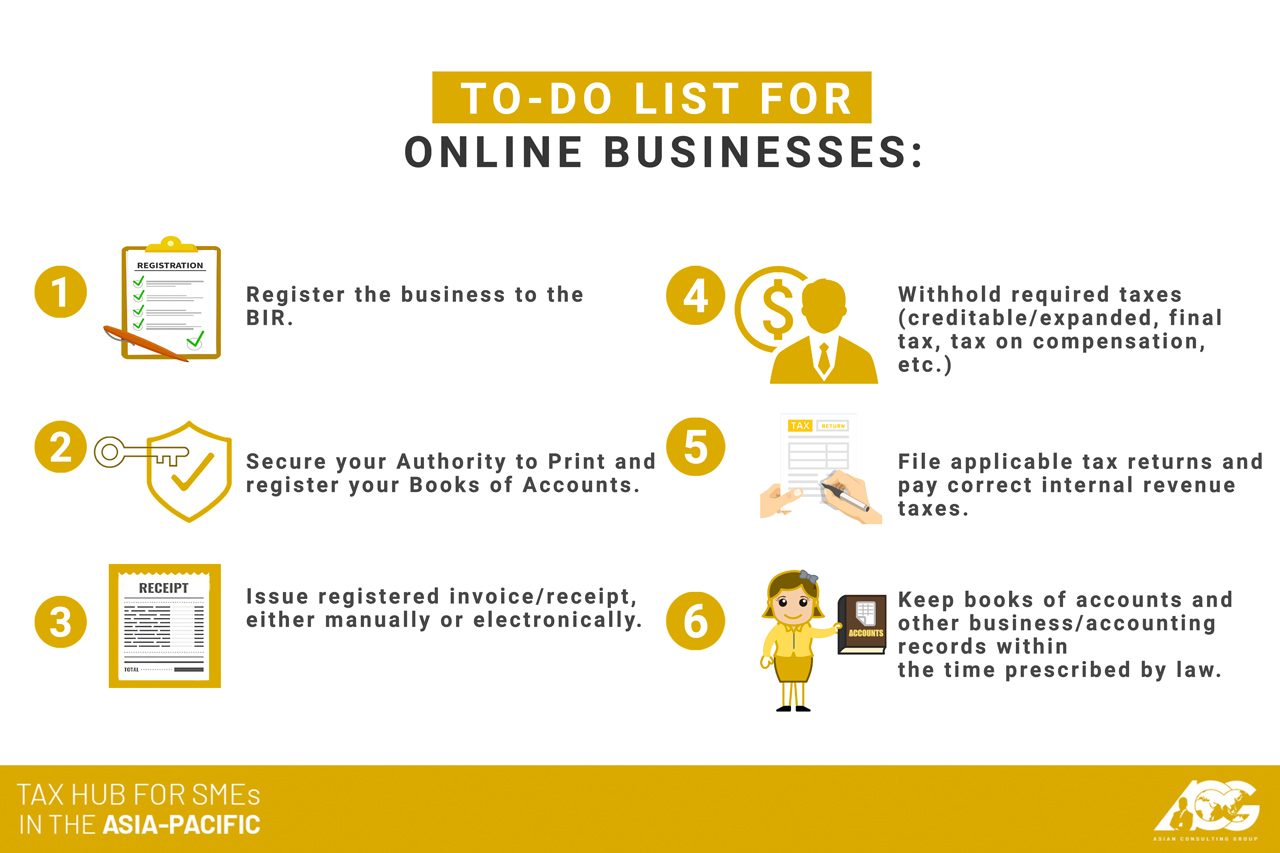SUMMARY
This is AI generated summarization, which may have errors. For context, always refer to the full article.

I’m planning on starting a small buy-and-sell business online. Do I still have to register my business and pay taxes?
Yes. According to RMC 55-2013, “The existing laws and revenue issuances on the tax treatment of purchases (local or imported) and sale (local or international) of goods (tangible or intangible) or services shall be equally applied with no distinction whether or not the marketing channel is the internet/digital media or the typical and customary physical medium.”
Essentially, this means that the Bureau of Internal Revenue (BIR) treats online businesses the same way as they would a sari-sari store or any other business.

If you sell your products online, you may want to apply as a Barangay Micro Business Enterprise (BMBE) since the BMBE Law also covers enterprises engaged in trading.
BMBEs are exempt from paying income taxes, among other incentives.
Will the ongoing tax reform affect how we do business online? Have there been any changes already?
Yes. Under the TRAIN law, businesses engaged in e-commerce, as well as exporters and large taxpayers, will be required to issue electronic receipts instead of manual receipts. However, the government still has until the end of 2022 to implement this.
TRAIN law also required the implementation of an electronic sales reporting system, but so far only applies to exporters and large taxpayers. The CITIRA bill aims to add the e-commerce industry to those required to use such a system.
The CITIRA bill will also give taxpayers incentives should they use the electronic sales reporting system. The proposed incentives are a 0.1% tax credit based on the purchase value and an allowable deductible expense of up to 10% if transactions are made via electronically-traceable payments (credit cards, debit cards, other methods of payment that can identify the identity of the payor).
Online businesses have to comply with the same tax regulations as everyone else. These include freelancers who do their businesses online. The Asian Consulting Group’s latest publication, “Iwas Buwis-it: What to Do When Tax Attacks” gives an overview of the taxes taxpayers have to pay. If you’re interested in a copy, contact us at consult@acg.ph or (02) 622-7720, or simply grab a copy in the National Bookstore nearest to you. – Rappler.com
Mon Abrea, popularly known as the Philippine Tax Whiz, is one of the 2017 Outstanding Persons of the World, a Move Awards 2016 Digital Mover, one of the 2015 The Outstanding Young Men of the Philippines (TOYM), an Asia CEO Young Leader of the Year, and founding president of the Asian Consulting Group (ACG) as well as the Center for Strategic Reforms of the Philippines (CSR Philippines). Assisting him in his column is JM Miñano, communications associate of ACG. He graduated with a bachelor’s degree in Communication Arts from the University of the Philippines Los Baños.
For inquiries, you may email consult@acg.ph or visit www.acg.ph for tax-related concerns.
Add a comment
How does this make you feel?
There are no comments yet. Add your comment to start the conversation.